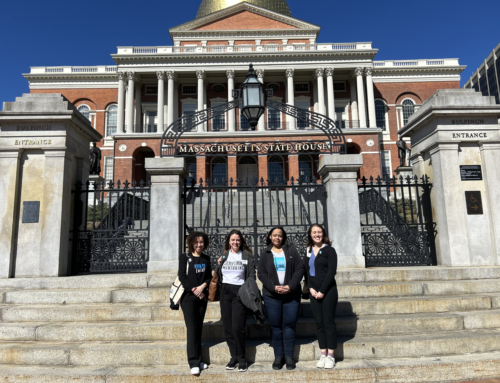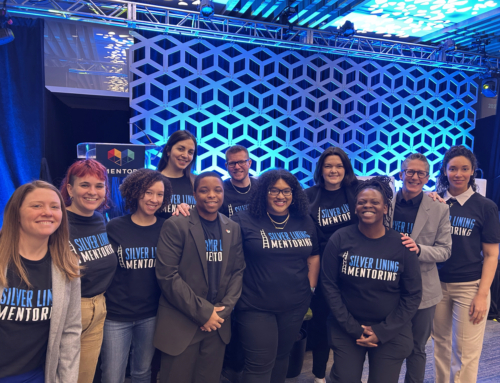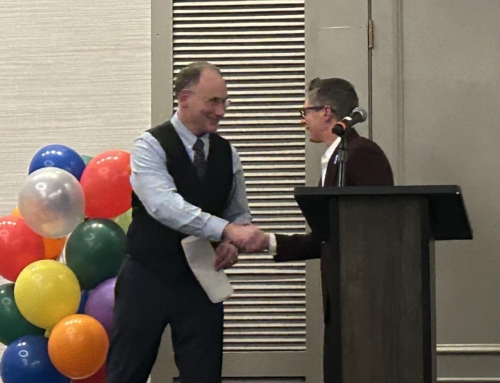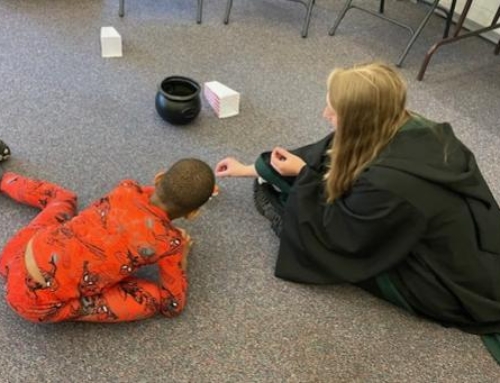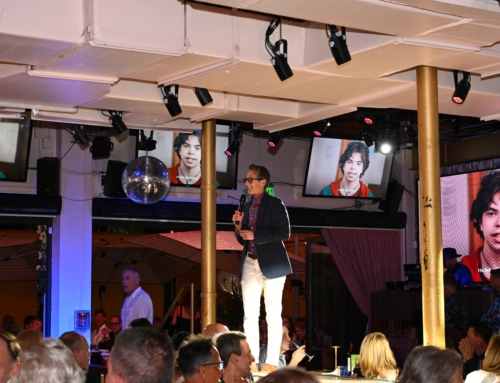by: Leah Harrigan
Here at Silver Lining Mentoring, we’re recently re-focused on an idea we’ve long held to be true: that Connections Matter. But you don’t have to take our word for it!
I watch a lot of Ted Talks (and by a lot I mean a lot). One of the most memorable ones I’ve ever seen was a longitudinal study on happiness. This study, led by Dr. Robert Waldinger, the Director of the Harvard Study of Adult Development, started 80 years ago. In fact, this is the single longest running study on happiness. The study asks a very simple question: What is the key to living a long, successful, happy life?
It began in 1938 with 268 Harvard sophomores (including President John F. Kennedy!) who were pricked, prodded and scrutinized in every aspect of their physical and mental health for decades. Researchers collected hordes of medical records, conducted hundreds of in-person interviews, gathered questionnaires, and more. The study has even expanded to include the partners and children of the original participants, which has turned it into one of the most involved studies ever to make it to the TED stage.
Amazingly, as of today the study has analyzed at least 1,300 individuals related by blood or marriage to the original 268 Harvard students. Notably, it has expanded in recent decades to include control groups of inner-city residents, to ensure that the conclusions from the study are not drawn exclusively from Harvard graduates.
The result?
Investing in quality relationships is what makes the difference for happiness quotients. This lesson was found by researchers over and over since this study began. The correlation between a thriving, happy life and the participants’ quality relationships with family, friends and their community is undeniable, and supported by research.
And this extends far beyond happiness. Quality relationships affect longevity. If I asked you to choose the best predictor of people’s physical health at age fifty, what would you guess? Cholesterol? A family history of disease? Heart health? Not quite. Once again, quality relationships are the underlying factor.
The results of this study have astounded people around the world. This research is unlike other known data, in that it connects healthy aging with human emotions which lead to quality relationships, including empathy and attachment.
Dr. Waldinger proposes the profound but simple idea that our relationships influence our health. Thus, taking care of your body, while important, is insufficient by itself to practice self-care, and must be complemented by cultivating meaningful relationships. Maintaining close friendships, being truly heard, and feeling connected to others have enormous effects on our long-term outcomes, proving (with science!) that connections matter.
In fact, even after controlling for wealth, social status, or whether or not you have a cultivated following on social media, close relationships are what create happiness throughout our lives. Close relationships not only delay mental health decline and boost physical health and longevity, but they are even better predictors of a happy life than social class, IQ, or biological gene makeup.
So what can we do with this information? How can we create these meaningful connections, and empower youth in foster care to thrive? At Silver Lining Mentoring, we have a unique recipe for doing just that. And the results speak volumes; our mentee-mentor match relationships last on average for 55 months, or over six times the length of the national average. We know that a strong personal mentoring relationship has the potential to change someone’s life for the better.
Thus, we happily side with Harvard on this one. Quality relationships prove to be better for our brains and healthier for our bodies. These relationships are the protective factor that promotes well-being even in a world which is full of adversity, especially for youth in foster care.
Becoming a mentor or other ways of supporting Silver Lining Mentoring are the means to put these findings into practice. You will not only improve life outcomes for youth in foster care, but you will increase your own health and happiness at the same time by increasing your connection to the community. Now that’s a win-win.
If you’d like to get more involved with Silver Lining Mentoring, you can click here to sign up for an information session, or click here to make a meaningful gift. We thank you for support!
